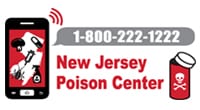Vaping
**Alert**
Contaminants found in vaping products have been linked to a national outbreak of lung injury.
According to CDC (Centers for Disease Control and Prevention), a total of 2,807 hospitalized EVALI cases or deaths have been reported to CDC from all 50 states, the District of Columbia, and two U.S. territories (Puerto Rico and U.S. Virgin Islands) as of February 18, 2020.
Sixty-eight deaths have been confirmed in 29 states and the District of Columbia (as of February 18, 2020).
About the Outbreak:
-
CDC, FDA, and state health authorities have made progress in identifying the cause of EVALI.
-
Emergency department (ED) visits related to e-cigarette or vaping products continue to decline, after sharply increasing in August 2019 and peaking in September.
-
National and state data from patient reports and product sample testing suggest tetrahydrocannabinol (THC)-containing e-cigarette, or vaping, products, particularly from informal sources like friends, family, or in-person or online dealers, are linked to most EVALI cases and play a major role in the outbreak.
-
Vitamin E acetate is strongly linked to the EVALI outbreak. Vitamin E acetate has been found in product samples tested by FDA and state laboratories and in patient lung fluid samples tested by CDC from geographically diverse states. Vitamin E acetate has not been found in the lung fluid of people that do not have EVALI.
-
Evidence is not sufficient to rule out the contribution of other chemicals of concern, including chemicals in either THC or non-THC products, in some of the reported EVALI cases.
CDC Recommendations:
-
CDC and FDA recommend that people NOT use THC-containing e-cigarette, or vaping, products, particularly from informal sources like friends, family, or in-person or online sellers/dealers.
-
Vitamin E acetate should not be added to any e-cigarette or vaping products. Additionally, people should not add any other substances not intended by the manufacturer to products, including products purchased through retail establishments.
-
While it appears that vitamin E acetate is associated with EVALI, there are many different substances and product sources that are being investigated, and there may be more than one cause. Therefore, the best way for people to ensure that they are not at risk while the investigation continues is to consider refraining from the use of all e-cigarette, or vaping, products.
-
Adults using nicotine-containing e-cigarettes or vaping products as an alternative to cigarettes should not go back to smoking; they should weigh all available information and consider utilizing FDA-approved cessation medications. They should contact their healthcare provider if they need help quitting tobacco products, including e-cigarettes, as well as if they have concerns about EVALI.
-
Adults who continue to use an e-cigarette, or vaping, product should carefully monitor themselves for symptoms and see a healthcare provider immediately if they develop symptoms like those reported in this outbreak.
-
E-cigarette, or vaping, products should never be used by youths, young adults, or women who are pregnant. Adults who do not currently use tobacco products should not start using e-cigarette, or vaping, products.
-
THC use has been associated with a wide range of health effects, particularly with prolonged frequent use. The best way to avoid potentially harmful effects is to not use THC-containing e-cigarette, or vaping, products.
-
Persons engaging in ongoing cannabis use that leads to significant impairment or distress should seek evidence-based treatment by a healthcare professional
Health Care Providers
The New Jersey Poison Control Center is the data collection point of contact for the CDC and New Jersey Department of Health. All cases of vaping related illnesses should be immediately reported to the New Jersey Poison Control Center by calling 1-800-222-1222.
E-cigarettes, vape pens, personal vaporizers, JUULS: these terms describe Electronic Nicotine Delivery Systems (ENDS), the use of which are on the rise. They contain a concentrated nicotine solution (“e-liquid”) which comes in a variety of flavors. Initially developed to help smokers quit cigarettes, their popularity among consumers who have never smoked is significant, especially in nicotine-naive adolescents. 11% of teenagers reported regular use of these products in a recent survey. The Centers for Disease Control, American Academy of Pediatrics, and the United States Surgeon General have all concluded that nicotine is dangerous for children at any age. The long-term effects of these products, which contain chemicals and carcinogens such as nitrosamines, are still unclear. Teens who use these products are more likely to begin using other tobacco products. Exposure to nicotine at this early age can also set the stage for addiction.
Worse still, concentrated nicotine liquid in the hands of a toddler can be fatal. Signs of nicotine poisoning include vomiting, agitation, sweating, and seizures. Like all drugs, we urge consumers to lock up the nicotine liquids and do not allow young children to access and potentially swallow it. If you have these products in your home, please be safe and make sure they don’t fall into the wrong hands.
Poison Control Centers handle thousands of calls for nicotine exposure each year. If you or someone you know is experiencing nicotine poisoning or has been exposed, we can help. Call us right away at 1-800-222-1222.
Information from the Experts
Resources
vapefactsnj.com
References:
Centers for Disease Control and Prevention. Tobacco Use Among Middle and High School Students—United States, 2011–2016. Morbidity and Mortality Weekly Report, 2017;66(23):597-603.
US Department of Health and Human Services (2016). E-Cigarette Use Among Youth and Young Adults: A Report of the Surgeon General. Atlanta, GA. US Department of Health and Human Services, Centers for Disease Control and Prevention, National Center for Chronic Disease Prevention and Health Promotion, Office on Smoking and Health
American Academy of Pediatrics Section on Tobacco Control. Electronic Nicotine Delivery Systems. Pediatrics 2015; 136.

